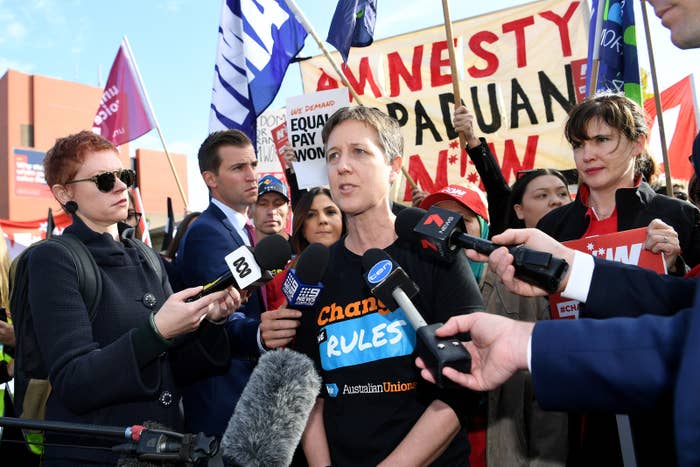
A study by a Reserve Bank of Australia researcher has found that the annual increase in the minimum wage paid to Australian workers from 1998 to 2008 had no adverse effect on the hours staff worked, and did not destroy jobs.
Employer groups and conservative commentators in Australia often argue against minimum wage increases when the Fair Work Commission (FWC) annually reviews the lowest hourly rate Australian workers can be paid.
In a report released by RBA researcher James Bishop on Thursday, Bishop used the steady annual increases in the minimum wage in Australia in the 1998-2008 period to track the impact it had on hours worked, and jobs in the market.
"I find that award changes are almost fully passed through to wages, and have no statistically significant effect on hours worked or the job destruction rate," Bishop said.
In fact, he found that jobs with larger award wage rises had larger increases in hours worked than jobs getting a smaller award wage rise.
"The point estimates suggest that the job destruction rate actually declines when the award wage is increased," he said.
The FWC held its final hearings this week as part of its annual award review, and will announce the new award wage later this year.
The current minimum wage is $694.90 per week, fulltime, or $18.29 per hour.
Most industry groups are advocating for a rise in the minimum wage of no more than 1.9% (although the National Retail Association recommends no increase at all).
The Australian Council of Trade Unions is calling for a 7.2% increase ($50 per week).
On Wednesday, data released by the government showed little improvement in wages in Australia. The seasonally adjusted Wage Price Index was just 2.1% up, and only 1.9% up for workers in the private sector. This means that wages are just keeping in line with inflation, and workers are seeing no real increase in their wages.
Australian Council of Trade Unions (ACTU) secretary Sally McManus said raising the minimum wage would bring it towards a target of a living wage (60% of the median wage).

"Australia needs a pay rise," McManus said. "Corporations are making record profits while the rest of us continue to struggle. Penalty rates are being cut and people aren’t getting the pay rises they need to keep up with basic living expenses like housing, power and childcare.
"When working people – especially people on low incomes – get a pay rise, they spend it. This is good for everyone. It means more customers for local businesses, which means more jobs for the people they hire to keep up with that demand."
